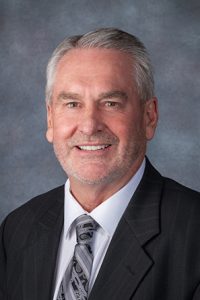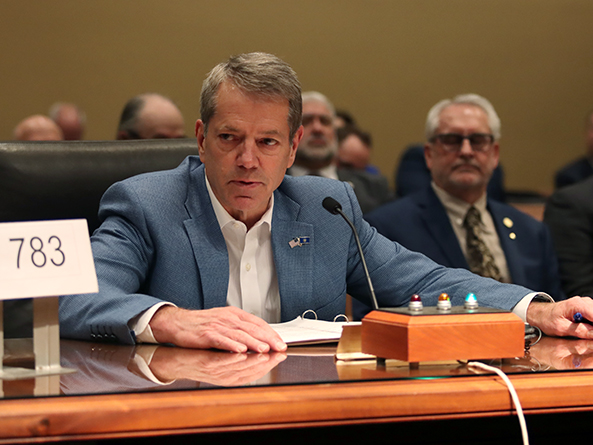Proposal would end community college levy
The state would assume responsibility for funding community colleges under a bill heard Feb. 2 by the Revenue Committee.

LB783, introduced by Sen. Dave Murman of Glenvil at the request of Gov. Jim Pillen, would eliminate the community college area levy after fiscal year 2025-26.
“Eliminating the tax authority of these boards will quickly provide dollar-for-dollar property tax relief for Nebraskans,” Murman said.
Beginning in 2027, the state would distribute funds to community colleges to offset their lost property tax revenue.
For 2027, the state would distribute to each community college the amount of property taxes it levied in tax year 2025, increased by 3.5 percent. For each year after that, the amount would be equal to the prior year’s distribution, increased by 3.5 percent.
LB783 also would eliminate a refundable income tax credit the Legislature created last year intended to offset part of the amount of property taxes Nebraskans pay to community colleges.
Pillen testified in support of the bill, saying it would ensure community colleges receive the funding they need to train skilled workers while also correcting an “extraordinary inequity” in Nebraska’s tax structure. He said it should be the state’s responsibility to fund community colleges, not local property taxpayers.
“There’s just not a shadow of a doubt in my mind that [LB783] will enhance … the impact that our community colleges will make for our workforce and for our kids,” Pillen said.
Also testifying in support was Michael Lucci of the Platte Institute. Eliminating the community college levy would reduce property tax collections by 5 to 6 percent statewide, he said.
The state would distribute more than $300 million per year to community colleges under LB783, Lucci said, but it also would save approximately $200 million per year by eliminating the credit created last year.
Jacy Schafer testified in support of the bill on behalf of Nebraska Cattlemen and the Nebraska Corn Growers Association. She said the amount of property taxes collected by community colleges has increased by approximately 80 percent over the past decade.
“While community colleges might be an affordable option for those enrolled,” Schafer said, “they are becoming far less reasonable for the property taxpayers footing the bill.”
Neal Stenberg testified in opposition to LB783 on behalf of Southeast Community College, saying future lawmakers would not be bound to continue funding community colleges at the proposed level. He said an “arbitrary” 3.5 percent annual increase in funding would not meet each college’s needs, which can fluctuate from year to year.
Additionally, Stenberg said, eliminating SCC’s levy authority could cause it to default on the financial instruments used to pay for recent capital improvements and prevent it from financing projects in the future.
Diane Keller, a member of the Nebraska Community College Association board of directors, also testified in opposition. Taking away locally elected college boards’ levy authority would limit their ability to offer new programs that meet their community’s needs, she said.
“Why are we looking at trying to change something that has worked well for 50 years … and has been proven to provide the workforce that we really need in our local areas?” Keller said.
The committee took no immediate action on the proposal.


